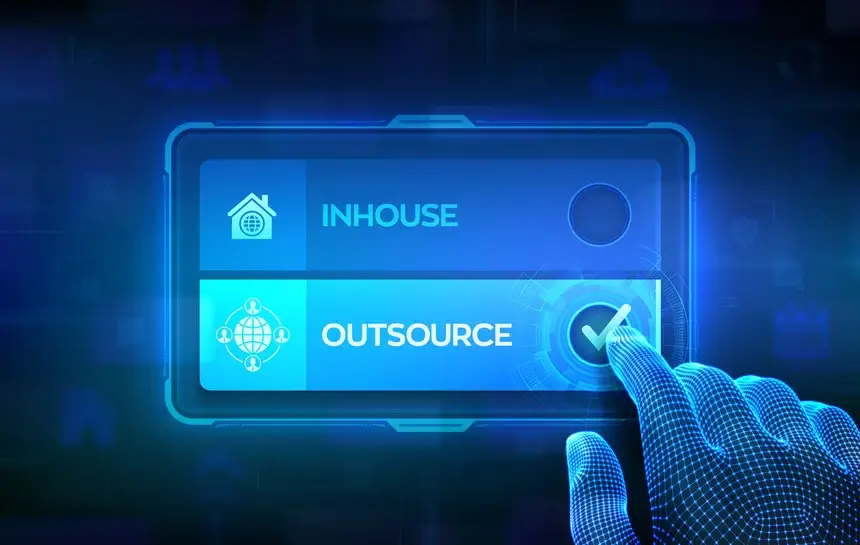Do You Need an MSP or an MSSP? What’s the Difference?
Companies in all industries rely heavily on technology to help with their day-to-day operations. From office workflow management tools to accounting...

For any modern business, cybersecurity is a critical issue. Whether the company needs to meet special industry regulations, thwart the countless cyber threats found online, or improve its reputation with investors and customers, having strong security is a must.
The cost of poor security can be extremely high. In fact, according to a study by IBM and the Ponemon Institute, the average cost of a data breach is $3.86 million worldwide (and $8.64 in the U.S., specifically). That’s millions of reasons to focus on security.
However, not every business can afford to do top-tier cybersecurity management in-house. Between hiring IT security experts, maintaining security solutions, and providing continuous training to keep up with new threats, managing cybersecurity is like starting a second business within the company.
This is part of the reason why many companies opt to use a managed security service provider (MSSP)—otherwise known as a cybersecurity company or IT security company—to create and maintain their security strategy.
An MSSP is a company that specializes in providing managed security services to its clients. This is different from a managed service provider (MSP) in that, while both provide IT-related services, the MSSP is focused primarily on security instead of service availability.
Examples of managed services an MSSP might provide include:
How do companies benefit from leveraging MSSP security instead of trying to do everything internally? Here are a few ways:
One of the biggest benefits of using an external contractor for managing cybersecurity is that it can save a lot of money. In MSSP proposals, cost of service is often a major focal point for the conversation.
Consider the costs involved in maintaining an internal cybersecurity team. PayScale cites the average base salary of a cybersecurity engineer at $96,987 per year—this doesn’t include bonuses or other benefits. Meanwhile, Salary.com states that the median salary for a Chief Information Security Officer (CISO) is about $213,493.
This means that the cost of a three-man cybersecurity team (consisting of one engineer to work each shift to maintain a 24/7 security presence) with no C-level cybersecurity personnel would cost about $290,961 just for labor. Expand that to a five-person team with a CISO so people can have a day or two off and cover any vacations or sick days, and the cost rises to $698,428 for employee labor.
This doesn’t include the cost of overtime, employee benefits, or even any of the hardware, software, or cloud assets the security team will need to do their jobs.
Compare this to the cost of hiring an external cybersecurity services team, which is a more predictable monthly expense with less variability. Inside of an MSSP’s service proposal, companies can see exactly what they’re paying for—and it’s often a fraction of the cost of maintaining a full cybersecurity team internally.
One of the reasons why hiring a full-time cybersecurity engineer is so expensive is that there’s a shortage of qualified talent in the industry. As noted by CSO Online, “the number of cybersecurity professionals required to close the cybersecurity skills gap has shrunk from 4.07 million to 3.12 million professionals.”
While this is a step in the right direction, it does mean that there aren’t enough professionals to go around. This scarcity makes it difficult (and expensive) to source IT security labor directly.
By hiring an MSSP, companies can close the IT security skills gap quickly and easily. This can help to save time and money alike—all while ensuring more stable access to cybersecurity expertise for whenever it’s needed.
Many businesses already have a dedicated IT team. However, the primary goal of this team is often to provide IT support to other business units and to ensure that the company’s mission-critical data and applications are available.
Trying to manage and maintain security policies, solutions, and plans on top of their regular IT duties can put an enormous burden on the IT team. This distracts from their ability to focus on their core mission and causes increased stress—which can lead to employee disengagement and high turnover among the IT team.
By leveraging a dedicated MSSP for cybersecurity, companies can alleviate the pressure on their IT teams. The time saved helps the IT team make more progress towards their core goals (uptime, support, and/or software dev) while reducing stress factors that contribute to poor performance and high attrition.
Replacing personnel is inevitable for any business. No matter how good a company’s benefits and pay are, how highly they rate on “Best Places to Work” lists, and how motivated their employees are, there will eventually come a time for an employee to leave.
Whether it’s because they’re retiring, moving on to new job opportunities, or are faced with personal issues, an employee will eventually leave. Replacing talented, high-skill employees like cybersecurity engineers can be a daunting and time-consuming task—especially considering the skills gap.
By using a managed security service provider, companies can completely eliminate the need to recruit cybersecurity staff. This can help leadership save time so they can focus on other priorities.
One of the biggest benefits of hiring an MSSP with deep knowledge and experience in managing cybersecurity is that they can help to close critical security gaps in the organization. MSSPs have the tools, training, and experience to identify major security gaps that could allow a cybercriminal to access sensitive data and systems.
By addressing security gaps, MSSPs can help their customers avoid millions of dollars in direct damages from data breaches and other IT security catastrophes. This can also help the organization protect its reputation by preventing harm to the company’s customers as well.
What should you look for in a managed cybersecurity service provider? What are the qualities that will most help you protect your business from harm?
Some key qualities to look for in an MSSP include:
Do you need help protecting your business from cybercriminals? Or, do you need to meet a specific regulatory compliance standard? Systems X is here to help! Get started on the road to meeting your security goals by contacting us today!

Companies in all industries rely heavily on technology to help with their day-to-day operations. From office workflow management tools to accounting...

Managed IT service solutions are revolutionizing the business landscape. By 2025, more than 60% of organizations will rely on these providers to...

Let's face it; no company, large or small, is immune to cyber threats. With the global annual cost of cybercrime predicted to top $8 trillion in 2023...